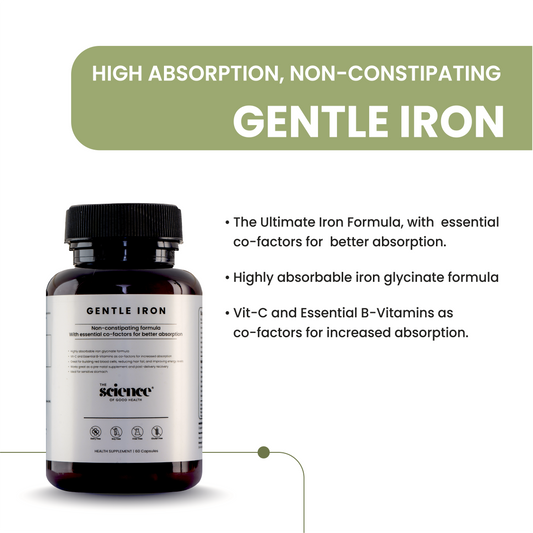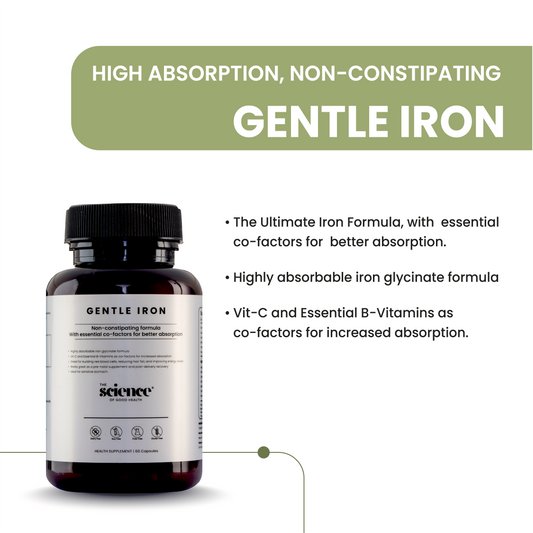If you are looking to improve sleep, reduce stress, or support muscle recovery, knowing the best time to take magnesium glycinate can make a significant difference. Magnesium plays a vital role in over 300 enzymatic processes in the body, including nerve function, muscle relaxation, blood sugar regulation, and energy production. However, taking magnesium at the wrong time may reduce its effectiveness or even cause mild side effects like sleepiness during the day.
Magnesium glycinate, a highly bioavailable form of magnesium bound with glycine, is particularly gentle on the stomach compared to other forms such as magnesium citrate or oxide. In this guide, we will explore the best time to take magnesium glycinate for different health goals, how to maximize absorption, dosage recommendations, and everything you need to know to get the most out of your supplement. Whether your aim is sleep improvement, stress relief, or general wellness, timing matters.
What is Magnesium Glycinate and Why is It Unique?
Magnesium glycinate is a compound where magnesium is combined with the amino acid glycine. This unique combination enhances absorption in the digestive system, making it one of the most bioavailable forms of magnesium. Unlike other forms of magnesium, it rarely causes stomach upset or diarrhea, making it ideal for daily supplementation.
Key Benefits of Magnesium Glycinate:
-
Supports stress relief and promotes calmness, thanks to glycine’s natural calming effect
-
Helps muscles relax, reduces cramps, and improves post-workout recovery
-
Promotes better sleep and relaxation by regulating melatonin and nervous system function
-
Supports bone health by aiding calcium absorption
-
Helps maintain heart health by supporting normal blood pressure levels
Understanding what magnesium glycinate does and why it is effective helps you appreciate why timing your intake correctly is important. The best time to take magnesium glycinate varies depending on whether your goal is sleep, stress management, muscle recovery, or overall wellness.
Factors That Influence the Best Time to Take Magnesium Glycinate
The optimal timing for magnesium glycinate depends on several key factors:
-
Absorption and Bioavailability: Magnesium glycinate is absorbed most efficiently when taken consistently, and slightly better when taken with meals containing protein or complex carbohydrates.
-
Lifestyle and Health Goals: Whether your priority is sleep improvement, stress reduction, or muscle recovery, the timing of your dose can enhance the results.
-
Possible Side Effects: Magnesium glycinate is gentle, but some people may feel mild drowsiness if taken during the day, making evening supplementation more suitable for certain individuals.
-
Consistency Over Timing: While timing is important, maintaining a daily routine ensures stable magnesium levels in the body.
Taking these factors into account allows you to identify the best time to take magnesium glycinate based on your personal health needs.
Best Time to Take Magnesium Glycinate Based on Your Goals
Here is a detailed guide to help you choose the best time to take magnesium glycinate according to specific health goals:
-
For Better Sleep and Relaxation: Take magnesium glycinate at night, about 30–60 minutes before bed. Magnesium promotes muscle relaxation and supports melatonin production, helping you fall asleep faster and enjoy deeper sleep.
-
For Stress and Anxiety Management: Evening or periods of high stress are ideal. Magnesium glycinate’s calming properties reduce cortisol levels and help the body relax.
-
For Muscle Recovery and Energy Support: Post-workout or with meals is recommended. Magnesium helps replenish what is lost during exercise and supports muscle repair and energy metabolism.
-
For General Wellness and Heart Health: Consistency is more important than exact timing. Take magnesium glycinate at the same time every day to maintain steady magnesium levels, supporting bone density, heart function, and overall wellness.
By choosing the correct timing based on your goals, you maximize the benefits and ensure that magnesium works in harmony with your body’s natural rhythms.
Can You Take Magnesium Glycinate With Food?
Yes, taking magnesium glycinate with food is often beneficial:
-
Enhances Absorption: Magnesium glycinate is better absorbed when paired with protein or complex carbohydrates.
-
Reduces Stomach Discomfort: While gentle, taking it with food minimizes any minor digestive irritation.
-
Practical Routine: Taking magnesium with meals can help establish a consistent supplementation habit.
For example, pairing magnesium glycinate with breakfast, lunch, or dinner can improve absorption and help your body utilize it efficiently, making it easier to stick to your daily routine and get the most out of each dose.
Special Considerations
While magnesium glycinate is safe for most people, some considerations can affect timing and effectiveness:
-
Irregular Sleep or Work Schedules: Shift workers or those with varying sleep patterns should take magnesium glycinate aligned with their sleep time to maximize relaxation and restorative benefits.
-
Drug Interactions: Magnesium can interfere with certain medications such as antibiotics, bisphosphonates, or thyroid medications. Consult a healthcare professional if you are on medication.
-
Time to See Results: Sleep improvements may be noticeable within a few days, muscle recovery may take a week, and benefits for bone and heart health may take several months.
Understanding these considerations helps ensure you are taking magnesium glycinate at the best time for your individual circumstances.
Recommended Dosage
-
General RDA: Adults need 310–420 mg of elemental magnesium daily.
-
Supplement Dosage: The Science of Good Health Magnesium Glycinate provides 121 mg elemental magnesium per capsule, allowing flexible dosing depending on your needs.
-
Consult a Physician: Dosage may need adjustment based on age, medical conditions, or dietary intake.
Taking magnesium glycinate at the best time consistently ensures your body maintains optimal magnesium levels, allowing you to experience all the benefits, from improved sleep to better muscle recovery.
Why Choose a High-Absorption Magnesium Glycinate Supplement?
Choosing a high-quality magnesium glycinate supplement ensures maximum benefit:
-
High Bioavailability: Easily absorbed for faster and more effective results
-
Supports Heart, Muscle, and Bone Health: Promotes normal blood pressure, strengthens bones, and reduces muscle cramps
-
Gentle on the Stomach: Suitable for daily use without gastrointestinal side effects
-
Relieves Migraines, Cramps, and Restless Legs: Glycine content enhances calmness and relaxation
A high-quality supplement combined with the best time to take magnesium glycinate helps you experience noticeable improvements in sleep, stress, and overall wellness.
Conclusion
The best time to take magnesium glycinate depends on your personal health goals. Evening intake is ideal for sleep and relaxation, while post-workout or consistent daily intake supports muscle recovery, stress management, and general wellness. Consistency matters more than the exact time, as regular supplementation ensures stable magnesium levels in the body.
Magnesium glycinate’s gentle, high-absorption formula makes it suitable for daily use. By pairing it with the right timing, you can maximize its benefits for sleep, stress relief, muscle recovery, and heart and bone health.
“Ready to experience deeper sleep, reduced stress, and improved muscle recovery? Try The Science of Good Health Magnesium Glycinate, a high-absorption, gentle, and science-backed formula designed for everyday wellness. Take the next step toward The Science of Good Health today!”
Read Our latest Blogs:
L Carnitine Fat Loss | Magnesium Glycinate vs Citrate | Creatine Side Effects | What is Creatine | Creatine Monohydrate Side Effects | Creatine Monohydrate Benefits | Best Time to Take Creatine
Frequently Asked Questions
Q1. Can I take magnesium glycinate in the morning?
Ans: Yes, but taking it in the morning may not maximize its sleep-promoting benefits. Evening intake is generally better for relaxation.
Q2. Will magnesium glycinate make me sleepy?
Ans: It can have a mild calming effect, especially when taken before bed. Daytime doses may cause slight drowsiness in sensitive individuals.
Q3. Can I take magnesium glycinate every day?
Ans: Daily supplementation is safe and recommended for maintaining optimal magnesium levels. Consistency is key.
Q4. How long does it take for magnesium glycinate to work?
Ans: Sleep improvements: 2–7 days, Muscle relaxation: 1 week, Bone & heart health: several months of regular intake.
Q5. Is it better to take magnesium glycinate with food or on an empty stomach?
Ans: Taking it with meals improves absorption and reduces the risk of mild digestive discomfort.
Q6. Can magnesium glycinate help with stress and anxiety?
Ans: Yes, glycine has natural calming effects, helping reduce stress and anxiety levels over time.
Q7. What is the ideal dosage of magnesium glycinate?
Ans: Typically 1–2 capsules per day (121 mg elemental magnesium per capsule), adjusted according to dietary intake and physician recommendations.
Q8. Does the timing of magnesium glycinate really affect results?
Ans: Yes, taking it at the right time based on your goals ensures better absorption, supports sleep, muscle recovery, stress management, and overall wellness.






